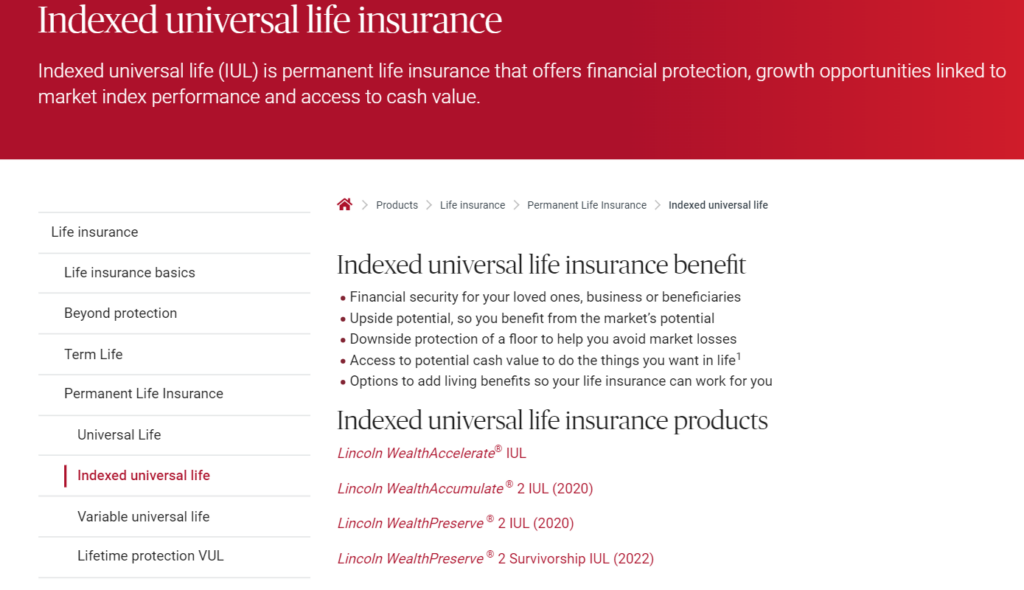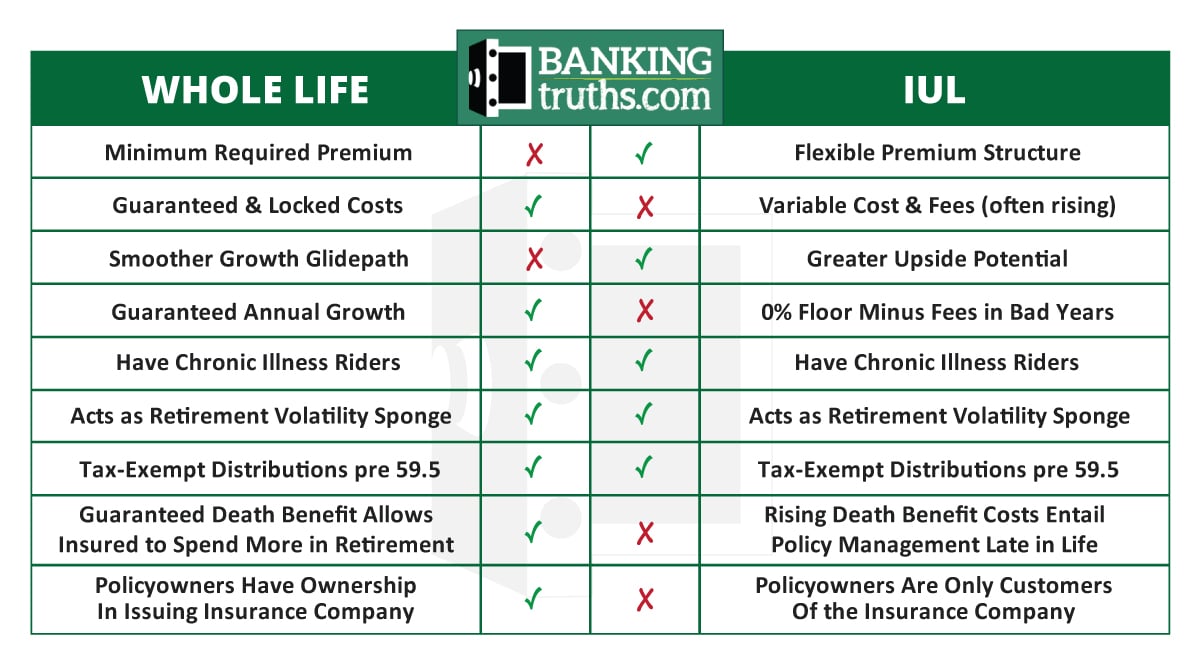All Categories
Featured
Table of Contents
1), often in an attempt to beat their classification standards. This is a straw guy argument, and one IUL folks love to make. Do they compare the IUL to something like the Vanguard Overall Supply Market Fund Admiral Show no load, an expenditure proportion (ER) of 5 basis points, a turn over ratio of 4.3%, and an exceptional tax-efficient document of distributions? No, they contrast it to some horrible proactively taken care of fund with an 8% load, a 2% ER, an 80% turn over proportion, and an awful document of short-term capital gain circulations.
Shared funds often make annual taxable circulations to fund proprietors, also when the worth of their fund has actually gone down in value. Common funds not only require revenue coverage (and the resulting annual tax) when the common fund is rising in value, however can also impose revenue tax obligations in a year when the fund has dropped in value.
That's not exactly how common funds work. You can tax-manage the fund, harvesting losses and gains in order to reduce taxed circulations to the investors, however that isn't somehow mosting likely to transform the reported return of the fund. Just Bernie Madoff kinds can do that. IULs prevent myriad tax traps. The ownership of shared funds might call for the shared fund proprietor to pay projected taxes.

IULs are very easy to position to ensure that, at the owner's death, the recipient is exempt to either revenue or estate taxes. The exact same tax obligation decrease methods do not function virtually also with mutual funds. There are countless, typically expensive, tax traps related to the moment buying and selling of shared fund shares, traps that do not put on indexed life insurance policy.
Opportunities aren't really high that you're mosting likely to be subject to the AMT as a result of your mutual fund circulations if you aren't without them. The rest of this one is half-truths at ideal. For example, while it holds true that there is no revenue tax obligation as a result of your successors when they acquire the proceeds of your IUL policy, it is additionally real that there is no income tax as a result of your successors when they acquire a common fund in a taxed account from you.
Universal Insurance Usa
The government inheritance tax exception limit mores than $10 Million for a pair, and growing each year with inflation. It's a non-issue for the large bulk of physicians, a lot less the remainder of America. There are far better methods to prevent estate tax problems than getting financial investments with low returns. Mutual funds may trigger income tax of Social Protection advantages.

The development within the IUL is tax-deferred and might be taken as free of tax income using finances. The plan owner (vs. the common fund supervisor) is in control of his or her reportable revenue, therefore enabling them to lower and even remove the taxation of their Social Safety benefits. This set is wonderful.
Right here's another very little issue. It's real if you purchase a common fund for claim $10 per share simply before the circulation date, and it disperses a $0.50 circulation, you are then going to owe taxes (most likely 7-10 cents per share) in spite of the fact that you haven't yet had any kind of gains.
Yet ultimately, it's really regarding the after-tax return, not just how much you pay in taxes. You are mosting likely to pay more in tax obligations by utilizing a taxed account than if you buy life insurance policy. You're additionally most likely going to have even more cash after paying those tax obligations. The record-keeping requirements for having mutual funds are substantially more complex.
With an IUL, one's records are kept by the insurance provider, copies of annual statements are mailed to the proprietor, and distributions (if any) are totaled and reported at year end. This set is additionally sort of silly. Certainly you need to keep your tax obligation records in situation of an audit.
Iul Pros And Cons
All you have to do is shove the paper into your tax folder when it reveals up in the mail. Barely a factor to purchase life insurance coverage. It resembles this person has never spent in a taxable account or something. Common funds are generally part of a decedent's probated estate.
Additionally, they undergo the delays and expenses of probate. The profits of the IUL policy, on the other hand, is constantly a non-probate distribution that passes outside of probate straight to one's called recipients, and is consequently not subject to one's posthumous creditors, undesirable public disclosure, or comparable delays and costs.
Medicaid incompetency and life time earnings. An IUL can offer their proprietors with a stream of earnings for their entire life time, no matter of just how lengthy they live.

This is advantageous when arranging one's affairs, and transforming assets to revenue prior to a retirement home confinement. Common funds can not be transformed in a similar way, and are practically always considered countable Medicaid possessions. This is another stupid one promoting that inadequate people (you know, the ones that need Medicaid, a government program for the bad, to spend for their assisted living home) must use IUL as opposed to common funds.
Equity Indexed Universal Life Insurance Policy
And life insurance policy looks terrible when contrasted relatively versus a pension. Second, people that have cash to buy IUL above and past their pension are going to need to be awful at managing cash in order to ever before receive Medicaid to pay for their assisted living facility prices.
Persistent and incurable ailment motorcyclist. All policies will permit an owner's simple accessibility to money from their plan, typically waiving any kind of surrender charges when such people suffer a severe health problem, require at-home treatment, or come to be restricted to a nursing home. Shared funds do not supply a comparable waiver when contingent deferred sales fees still put on a shared fund account whose owner needs to sell some shares to money the prices of such a stay.
Compare Universal Life Insurance Rates
Yet you reach pay more for that benefit (biker) with an insurance plan. What a large amount! Indexed global life insurance policy gives survivor benefit to the recipients of the IUL proprietors, and neither the proprietor neither the recipient can ever lose money because of a down market. Shared funds give no such guarantees or survivor benefit of any kind.
I absolutely do not require one after I get to financial freedom. Do I want one? On average, a purchaser of life insurance policy pays for the true price of the life insurance policy benefit, plus the prices of the policy, plus the profits of the insurance policy business.
Universal Life Insurance Interest Rates
I'm not totally certain why Mr. Morais threw in the whole "you can't lose money" again below as it was covered fairly well in # 1. He simply intended to repeat the very best marketing point for these points I mean. Once again, you don't shed nominal dollars, however you can lose real dollars, as well as face severe chance expense due to reduced returns.

An indexed universal life insurance policy plan owner might exchange their plan for an entirely different policy without causing earnings tax obligations. A common fund proprietor can not relocate funds from one mutual fund business to one more without offering his shares at the previous (thus setting off a taxed event), and buying brand-new shares at the latter, typically based on sales costs at both.
While it is true that you can exchange one insurance plan for an additional, the factor that people do this is that the first one is such an awful plan that even after buying a brand-new one and experiencing the early, unfavorable return years, you'll still appear ahead. If they were offered the appropriate policy the very first time, they shouldn't have any type of need to ever trade it and go through the early, unfavorable return years once again.
Latest Posts
Should I Cancel My Universal Life Insurance Policy
Life Insurance Term Vs Universal
Nationwide Yourlife Indexed Ul Accumulator